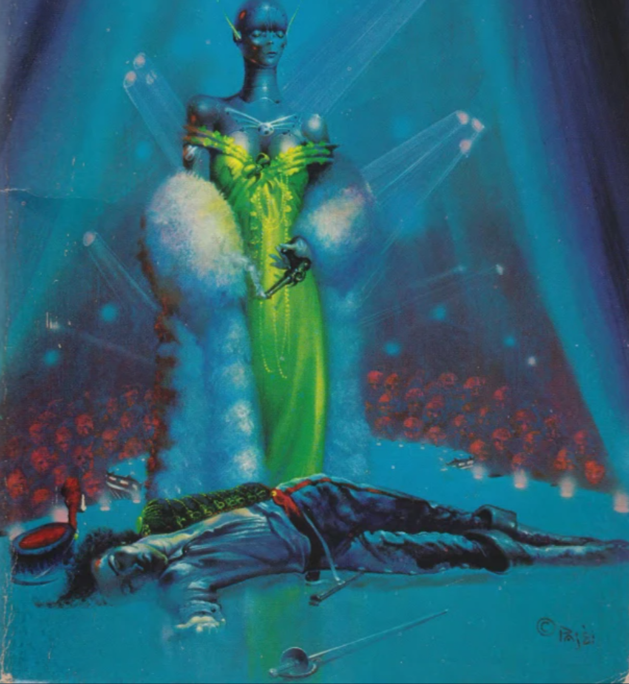
Early Warning
Sometime in the 21st century, human actors and writers will become obsolete. Movies, television shows, and even stage plays will be performed by automatons, created from scans of the world’s top human actors and controlled by programs that have replaced human writers and directors.
Surprisingly, that is not a contemporary prediction. It’s a summary of the science-fiction novelette “The Darftsteller,” which first appeared in Astounding Science Fiction back in 1955. It went on to win the Hugo Award for its author, Walter M. Miller, Jr.
Although the technology depicted in Miller’s story is typical of 1950s science fiction (the artificial actors are robots and the computer programs are stored on tape), the central conflict is right out of today’s headlines.

This Might be the Future
Consider a recent article from NPR in which screen actors talk about being subjected to face and body scans while working as background performers on WandaVision. Sensing that refusal might jeopardize future employment, but fearing that the scan could result in his likeness being used without compensation in future productions, one actor lamented, “This might just be the future. We might just lose out jobs.”
But it’s not merely a future concern. Take, for example, the posthumous performances of Laurence Olivier in Sky Captain and the World of Tomorrow (1989), Peter Cushing in Rogue One: A Star Wars Story (2016), and Christopher Reeves in The Flash (2023). And there are others. Lots of them. (See the Screen Rant article “Ten Actors Brought Back from the Dead with CGI” for a few more examples.)
At this point, I know of no feature films produced from AI-generated scripts. There is, however, the dramatic short The Safe Zone, which purports to have been written and directed with assistance from AI. Nevertheless, Pandora’s box has been opened, and it’s clear the concerns of SAG-AFTRA and the WGA are warranted. (See the LA Times article “As actors and writers push back on automation, Hollywood is in the midst of an AI hiring boom.”)

Impact of AI on SF
Last month, I discussed these issues and more while taking part in a panel at Confluence, one of the great regional science fiction conventions. Sponsored by PARSEC (aka the Pittsburgh Area Realtime Scientifiction Enthusiasts Club) and held at Pittsburgh Airport Sheraton, the convention ran from July 21-23 and featured readings, presentations, and panels on topics of interest to the SF community.
Naturally, AI was one of those topics.
Titled “The Impact of AI on SF Writing and SF Art” and moderated by Scot Noel (editor of DreamForge Magazine), the AI panel considered the ways in which machine learning may affect SF publishing in the future.
Click the player below to hear more. I’ll meet you there.
Leave a Reply